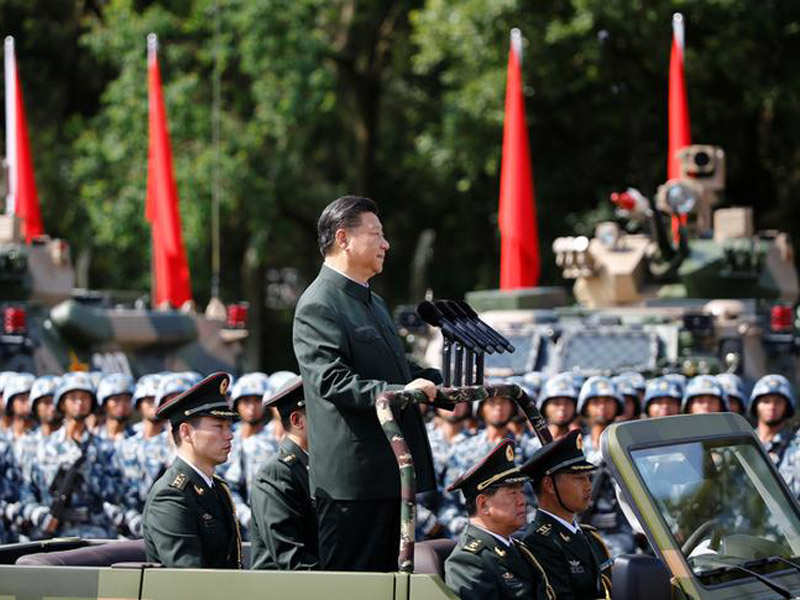Beijing, China, July 07: Chinese President Xi Jinping has emphasized the need for the PLA to “deepen war and combat planning” in order to increase the chances of victory in actual combat, according to the state-run Xinhua news agency.
During an inspection tour of the Eastern Theatre Command, which oversees security matters related to Taiwan, Japan, and the East China Sea, President Xi reiterated his call for the military to safeguard China’s sovereignty and territory at all costs.
Citing the current global environment characterized by “turmoil and change,” Xi Jinping urged the People’s Liberation Army (PLA) to intensify combat preparedness.
He expressed concern over China’s security situation, stating that it has become more unstable and uncertain.
These warmongering comments follow Xi’s unprecedented third term extension as president, as he wishes to solidify his position as China’s most powerful leader replacing Chairman Mao Zedong.
Xi Jinping’s vision for China includes stepping up its ability to safeguard national security, with a goal of transforming the military into a formidable “Great Wall of Steel.”
Under his leadership, China has displayed increased assertiveness, challenging the existing world order largely dominated by the United States.
Middle Kingdom Syndrome
Experts have attributed the Chinese Communist Party’s actions in the last 7 decades to a perceived “Middle Kingdom syndrome,” which aims to establish China as the preeminent global power by 2049, the 100th anniversary of the foundation of the People’s Republic of China.
Since assuming office in 2013, Xi Jinping has pursued this vision, embarking on various conflicts, both internally and externally.
These include suppressions in Hong Kong, Xinjiang, and Tibet, as well as engaging in territorial disputes in the Himalayan region (with India), the East China Sea (specifically concerning Taiwan), and the South China Sea.
Xi Jinping refers to these conflicts as “local wars” and has directed the military to be “battle-ready” in order to secure victory.
Reports have surfaced indicating Xi’s plans for the potential unification of Taiwan by 2027, with the option of using force if necessary.
As a result of China’s aggressive posture, the country has garnered powerful adversaries such as the United States and India.
In response to Chinese assertiveness, these adversaries have formed strategic partnerships, as seen in alignments such as the QUAD, AUKUS, and even G7, aiming to contain China’s influence.
The escalating tensions have raised concerns among experts, who fear the situation could escalate into a “New Cold War,” posing significant risks to the already fragile global economy.
Additionally, President Xi’s recent inspection of the Southern Theatre Command, responsible for the South China Sea region, emphasized the importance of deepening military training and preparation.
These comments are coming amidst the Chinese navy’s increased assertiveness in countering the expanding U.S. maritime presence in the area through training missions and drills.
The Chinese economy is losing its shine in recent years as it hasn’t been successful in fully recovering from ‘Zero-Covid’ restrictions. This along with Xi’s socialist measures, and the ongoing trade war with the United States is further downgrading the global business confidence in the Chinese economy.
It remains to be seen whether economic concerns, as China’s economy faces challenges with declining growth rates, will have any impact on Xi Jinping’s geopolitical pursuits.






